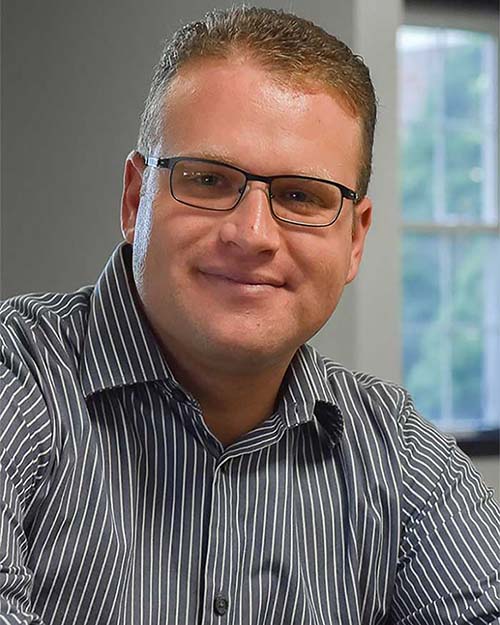Having spent more than 10 years managing a high volume law practice in Massachusetts, Blueprint Recovery Center’s Executive Director Jonathan Gerson entered recovery himself and began new way of life, and with that developed new career aspirations. “I grew a lot and learned a lot, but hit the ceiling,” Gerson said. “In early recovery I lived much more simply, I was no longer driven only by ambition, but became more focused on what I could contribute back to the world. For years I had only taken – taken from community, my friends and most significantly my family.” After Gerson opened several sober living communities in Manchester New Hampshire, Amatus Recovery Centers became aware of the need for a substance use treatment facility in the area. Through networking, Gerson became the company’s point of contact, and eventually Blueprint’s Executive Director. Gerson, who entered treatment for the first time when he was 13 years old, knows the benefit of prioritizing recovery. “I spent a lot of time getting clean and sober for periods of time but I never truly made it a priority in my life. As expected, I would inevitably pick up again,” he said. “The last time getting sober, I knew that practicing a program would have to remain, and always be my priority. No one has to be more vigilant in their own recovery than people who work in the treatment industry.” The 9,000 square-foot Blueprint Recovery Center has been open for more than 18 months, and has served over 350 clients from New Hampshire and the surrounding states. “It’s been a learning experience. What’s most rewarding is the growth of our Alumni community, some of whom are now employed with us. Having them sit at the table where we once discussed their own cases, is truly a miracle and privilege.” Gerson said. “We host graduations, and I try to attend as many of them as I can. It’s a testament to the integrity and success of the program.” Gerson calls the Blueprint staff “cohesive and caring,” noting that clients’ well-being is always the top priority. Blueprint Recovery Center stands out, he says, for its approach of meeting each client where they are at, not offering one-size-fits-all programming. “We’re unique in that we have an abstinence-based philosophy, but we understand the needs of each client. Therefore, we combined medicated assisted treatment with abstinence-based modalities as a more forward-looking approach, having an end goal of complete abstinence,” he said. “With suboxone we encourage a slow taper so you will eventually become abstinent.” Gerson says he got sober for his mother, who he calls “my biggest fan.” She passed away a year and a half into his sobriety, but he continues his own recovery and helps to facilitate the recovery of others in her memory. “She was instrumental in me getting sober,” he said. “I live every day trying to make her proud.”







